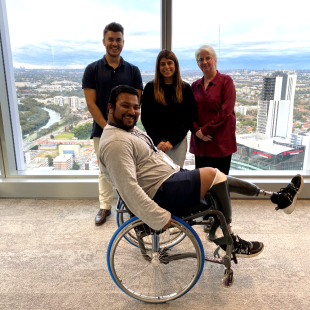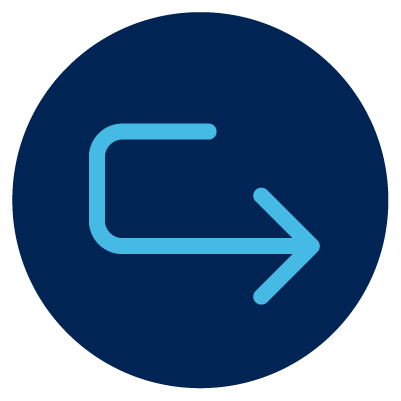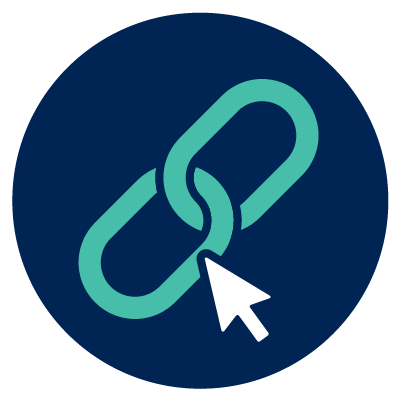Settling into your new job
It’s normal to feel nervous when you’re starting a new job, especially if it’s your first job or you’ve had a long break from work. Each workplace is different but there are some things you can expect and plan for.
Before your first day
Check you have all the information you need to get ready to start.
- Where to go – make sure you know where you need to go on your first day and how you’ll get there. If this is a new route, it’s worth getting familiar with the amount of traffic going the same way, or how busy and accessible public transport is.
- Plan to arrive early - find out about parking, if you need it. You might need to allow more time for things like checking into security on the first day.
- Contacts – make a note of who you need to ask for when you arrive on your first day.
- Dress code – find out what kind of clothes you should wear or if there’s a uniform. Give yourself time to buy or borrow any items you might need.
- Local facilities – you might want to ask what facilities are on site, such as a lunch room or fridge. Or what’s nearby, like shops or cafes for lunch.
- What to bring – ask what documents and information you might need to bring. For example, your bank and tax details. Check if you need to bring any of your own equipment to do your job.
- Remote setup – if you’ll be working from home, check what technology you need and what your employer will provide.
For more advice, visit the Fair Work website Starting a new job page. You can download a guide and checklist and take a short free online course.
Your first few days
Some employers run formal orientation programs to introduce new employees to the workplace. This is also called ‘onboarding’ or ‘induction’.
Even if there isn’t a formal orientation, there are a few things you’ll likely need to do as you settle into your new job.
- Paperwork – your employer will usually have forms to fill out. For example, for your bank account, tax and superannuation details. There may also be other documents to look at or sign.
- Your role – check the details of your job description. Ask any questions you need to as you learn the tasks in your job.
- Work health and safety – there will usually be training about health and safety in your workplace. This will include any rules you need to follow.
- Emergencies – you should find out about what to do in an emergency, including any evacuation plans. If you think you may need assistance during an evacuation you should speak to your supervisor.
- Policies and procedures – get to know the workplace policies and processes. This might include rules about using mobile phones and other devices during work hours. Check what the process is if you’re sick or running late for work.
- Support at work – find out who you should speak to if you need help. Some workplaces have a mentor or buddy system, where another employee will support you as you learn. Your employer might also have other support programs, like free counselling.
When starting any new job, it's also good to be aware of your rights and responsibilities. This includes understanding privacy, discrimination and work health and safety laws.
There is also information available for your employer about evacuation plans for employees with disability.
Getting support
If you need an Auslan interpreter to be at an induction program, your Inclusive Employment Australia provider can help arrange this. If you don’t have an Inclusive Employment Australia provider, you may be able to get funding for an interpreter through the Employment Assistance Fund (EAF).
The EAF can help pay for changes to the workplace, equipment or services to support people with disability to do their job. Talk to your employer about any adjustments you might need and visit Funding for changes in the workplace for more information.
Related pages
Last updated:
Real life story – A passport to success
Meet Dwayne Fernandes, Diversity and Inclusion Partner at the Department of Planning, Industry and Environment.
Settling into your new job

It’s normal to feel nervous when you start a new job.
Especially if:
- it’s your first job
- you haven’t worked in a while.
There are things you can plan for so settling into your new job is easier.
What to think about before your first day
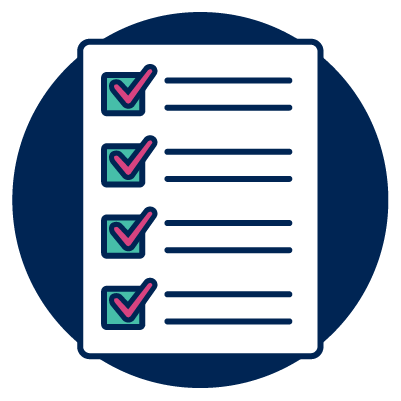
Try to make sure you have everything you need before your first day at a new job.
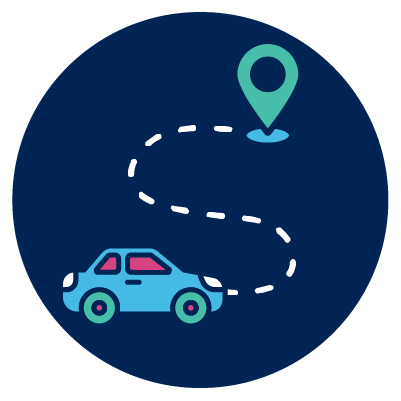
You should find out:
- where you need to go
- how to get there.
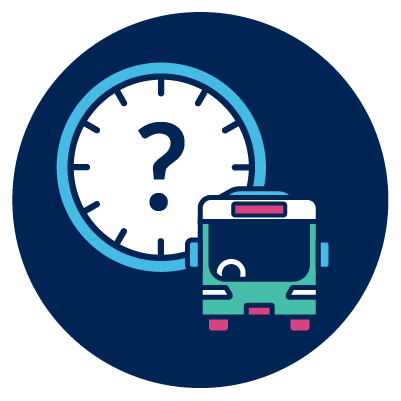
You should also find out how long it will take.
This includes how busy the roads could be when you’re going to your job.
Or how busy public transport could be.
These things can affect how long it will take to arrive.
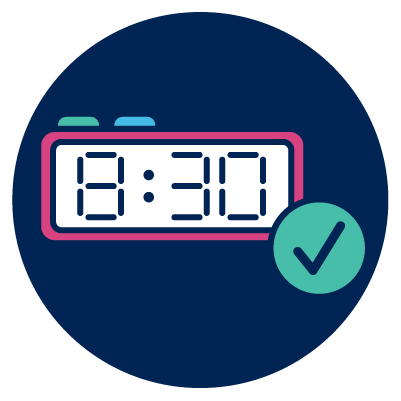
You should try to arrive early on your first day.
This will give you time to:
- find a parking spot
- check into the building if you need to
- find where you’ll work.
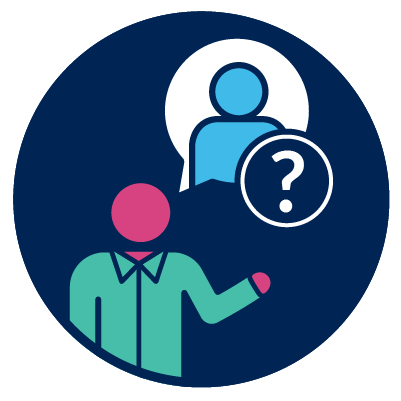
It’s a good idea to know who you need to meet when you arrive.
For example, the person who will train you.
You might have to ask people where you can find them.
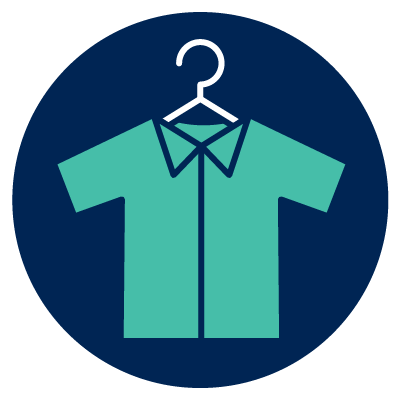
Try to find out what type of clothes you should wear or if there’s a uniform.
For example, if the job is in a supermarket your employer should give you a uniform on your first day.
Give yourself time to buy or borrow any clothes you need before your first day.
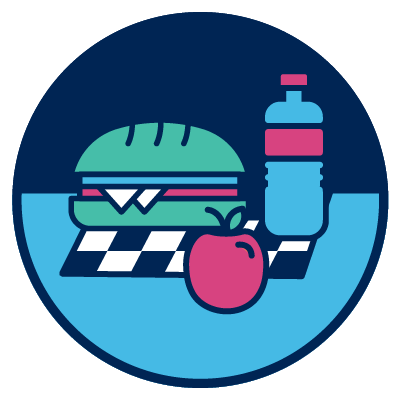
You might want to ask where you can get lunch each day.
For example, if they have a:
- café or shop nearby
- fridge you can keep your lunch in.
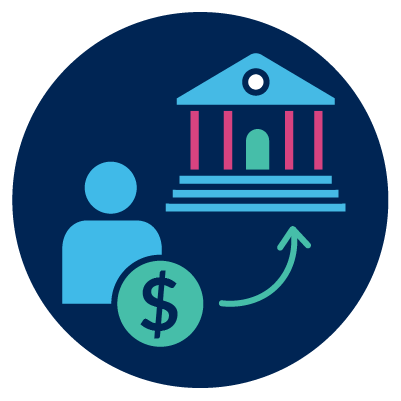
Try to find out what information or documents you need to bring for your first day.
For example, your bank or Tax is money all Australians pay to the government. The government uses tax to pay for things in the community, like roads and hospitals. details.
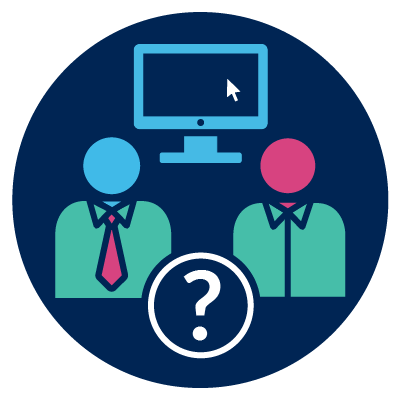
You should check if you need to bring any of your own equipment or technology to do your job.
If you’re working from home, you should check what technology:
- you need
- your employer will provide.
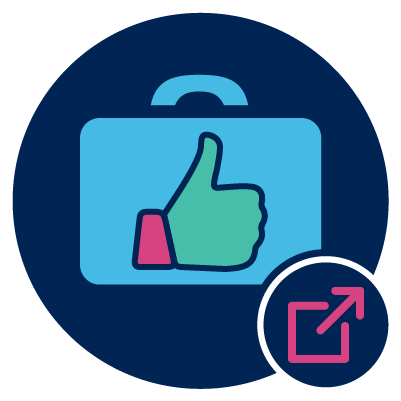
You can visit the Fair Work website for more information about starting a new job.
Your first few days
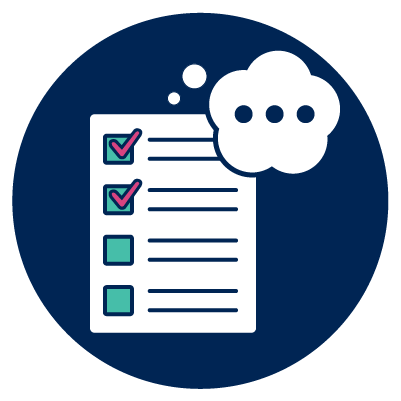
There are a few things to do and think about in your first few days at a new job.
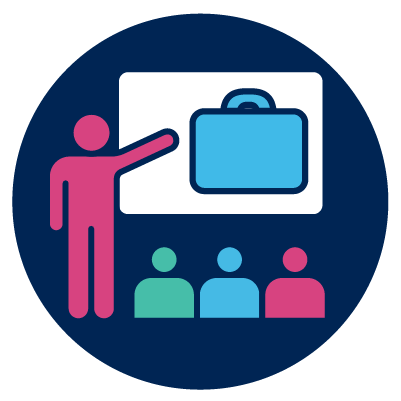
Some employers might run a program for new workers.
But not every employer does.
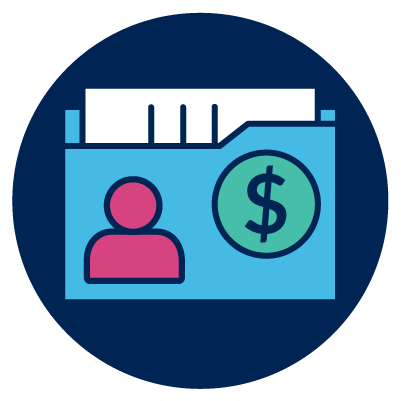
You might need to fill out or sign forms when you first start.
You will probably need to give information about your:
- bank account
- tax
- Superannuation is money that is set aside for you to use when you retire.
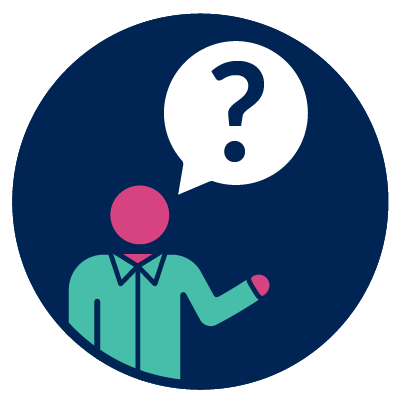
In your first few days you should ask any questions you have about:
- your job
- the tasks you need to do.
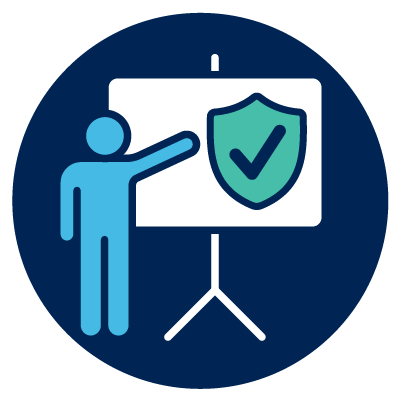
You will probably need to do training about health and safety in your A workplace is any place you might work, such as an office, factory or shop.
Make sure you listen and follow all the health and safety rules at your job.
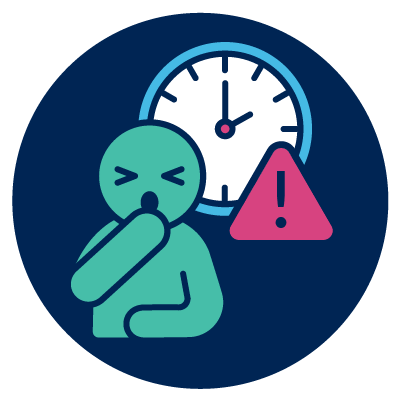
You should learn about any rules at your work, like when you can use your phone.
You should ask your employer about what happens if you’re:
- sick
- late to work.

You should find out what you need to do in an emergency.
Your employer will probably have an emergency plan that everyone needs to follow.
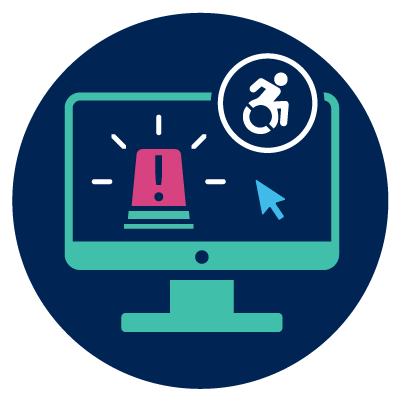
You should talk to your employer about any support you’ll need if there’s an emergency.
They can find information online about emergency plans for workers with disability.
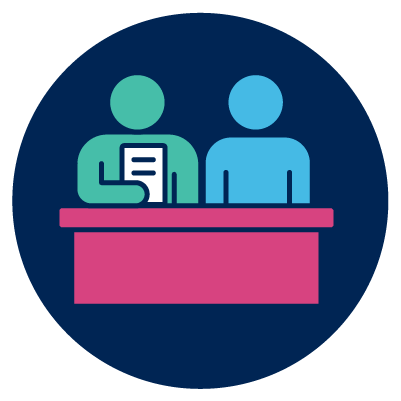
You should also find out what you can do if you need support while you’re at work.
Some workplaces have:
- support programs
- co-workers who can help you as you learn.
Your rights
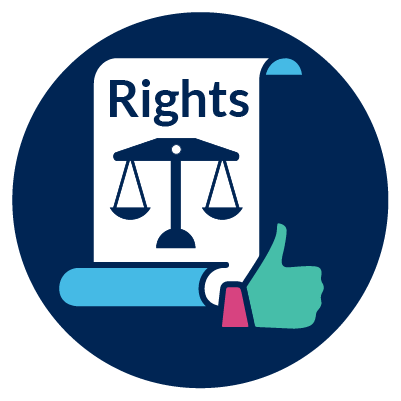
When you start a new job, it’s good to know about:
- what you have to do
- your Rights are rules about how people need to treat you fairly and equally.
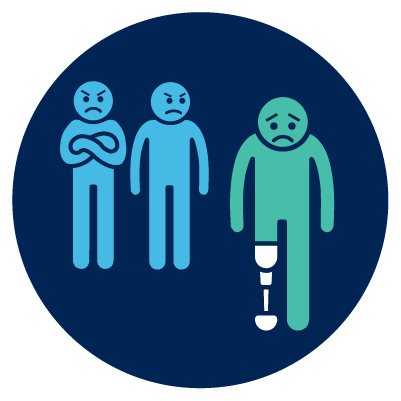
As part of this, it’s good to understand laws about:
- privacy
- work health and safety
- Discrimination is when someone treats you unfairly because of a part of who you are. This includes how services treat you. For example, your disability or age.
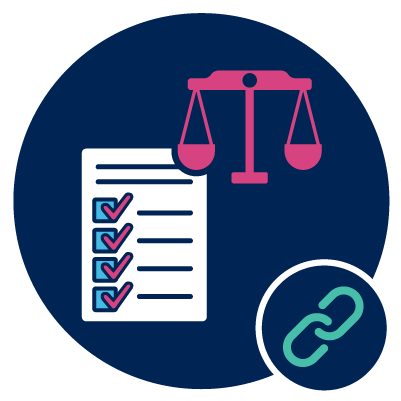
You can find out more on our page about your rights and responsibilities.
How to get support

As you settle into work, you can get support from someone who can use Auslan.
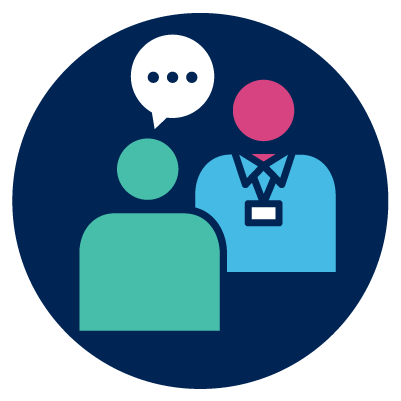
You can ask your Inclusive Employment Australia helps people with disability find and keep jobs. Inclusive Employment Australia providers deliver services to help people with disability do this.
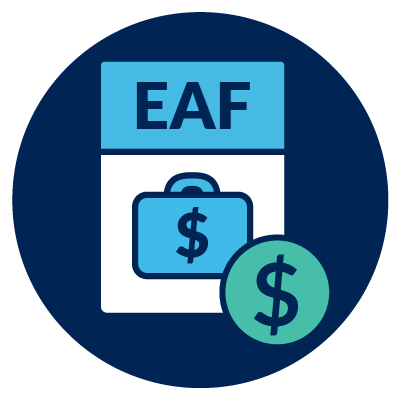
The The EAF can cover the cost of supports and services so people with disability can do their job and get help with finding a job. can help you with this too.
They can also help cover the cost of:
- equipment
- support to do your job
- changes to your workplace.
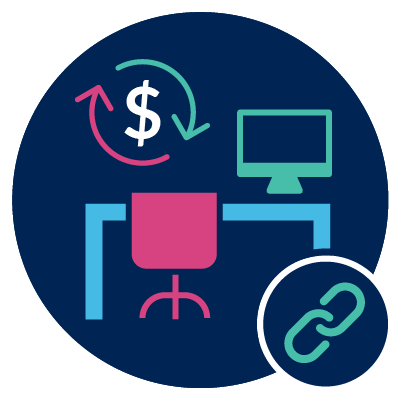
You can find out more on our page about funding for changes in the workplace.
